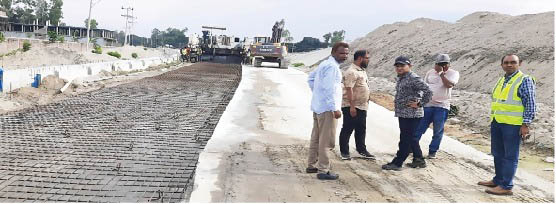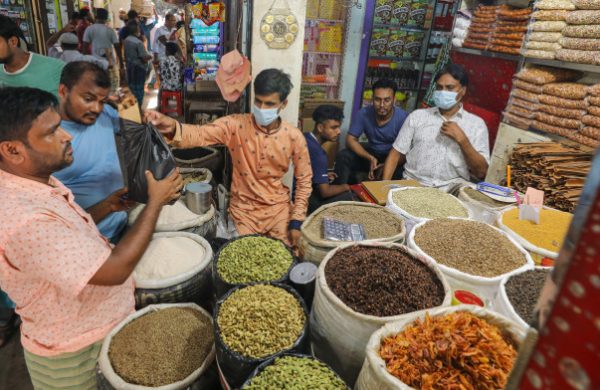Extensive use of antibiotics poses high risk
- Update Time : Saturday, December 26, 2020

STAFF REPORTER:
The excessive use of antibiotics leading to the rapid spread of antibiotic resistance is posing serious threat to the health of human being. But, there is still lack of a quantitative model to handle the risks properly, speakers said.
Though, the government has a policy on it, but to no enforcement. As a result, the use of antibiotics has been increased abnormally putting the public health at risk. If it is not resisted, the situation may be worsened in future, they made the remarks, while addressing a workshop.
The workshop titled ‘Community Engagement and One Health Approach to Address Antimicrobial Resistance: Opportunities and Challenges’ was held on Tuesday night through the zoom platform with the stakeholders from different levels and sectors.
The program was organized by the ARK foundation, an NGO engaged with the innovation of evidence-based solution, creating an impact on human life and good practice in health and development.
Disclosing various negative directions, the speakers said, this is the high time to make some strategic changes and implement the policy for the sake of public health. One health approach is very important. Consequently, everyone needs to participate in preventing the ineffectiveness of antibiotics and protecting human health, animal health, environment and agriculture.
They further said, the spread of antimicrobial resistance (AMR) is an issue of growing global concern. It is often cited as one of the most critical threats to global health, food security and development. We need to focus on disease prevention so that we do not have to use antibiotics.
Professor Abul Faiz, former Director of the Directorate General of Health Services (DGHS) said, “Prevention is better than cure. We need to focus more on prevention of diseases so that the dependency on antibiotics is completely eliminated. This is why, people should be aware about proper sanitation, food safety and waste disposal. If not, public health may fall at high risk during and post corona pandemic.”
Professor Shah Munir Hossain, former Director of DGHS also said, “The responsibility of antibiotic resistance is on the shoulders of both the pharmacists and health care providers along with the irrational usage of antibiotics by the general people.”
Dr. Khaleda Islam, former Director of Primary Healthcare and DAI-Fleming Fund reiterated the importance of Antibiotic Resistance by urging the Director General of Drug Administration (DGDA) to change the colour of the antibiotic medicinal strip to Red, which will signal a caution to both the users and the sellers.
Prof. Tahmina Shirin, Director of Institute of Epidemiology, Disease Control and Research (IEDCR) said, “The government has a policy on the usage of the antibiotics. But, the implementation of the policy is very weak. It is now high time to implement the policy by modifying the strategies.”
Dr. Kausar Afsana, Professor of James P Grant School of Public Health said, “One Health approach is vital. To make it successful, we have to identify and involve the key stakeholders of the Animal Sector, Agricultural Sector and WASH Sector in the process. Otherwise, it will not be possible to reduce the use of antibiotics.”
Professor Dr. Rumana Huque, Executive Director and Professor of the Economics Department in Dhaka University moderated the workshop, while Principal Scientific Officer of IEDCR Dr. Zakir Hossain Habib, Deputy Program Manager of Center for Disease Control Dr. Anindo Rahman, Evaluator of Center for Disease Control Dr. Shahriar Rizvi, Representative of Southeast Asia One Health University Network Dr. ANM Ehteshamul Kabir, Associate Professor of BSMMU Dr. Debatosh Paul, Professor of Chittagong Veterinary and Animal Science University Dr. Amam Zonaid Siddiqui, Technical Advisor of The Union Advocate Syed Mahabubul Alam, Research Associate of Ark Foundation Dr. Fariza Fieroze and Senior Research Associate Zunayed-Al-Azdi among others were also present in the program.

















